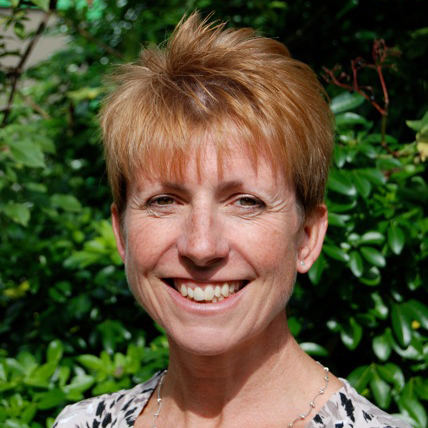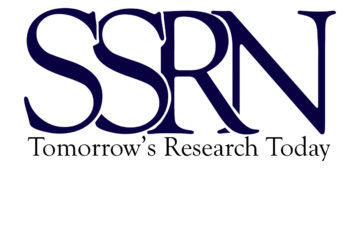 Andrea Powell is the Chief Information Officer for CABI (Centre for Agricultural and Biosciences International) based in Oxfordshire in the UK. Andrea is one of those inspiring people that you have no choice but to listen to when she speaks – she is erudite and open to new ways of thinking and has taken CABI to a new definition of how a publishing operation should be configured. CABI itself is interesting. This is an organization that matters. Owned by 48 Member Countries and with 500 staff in 17 countries across the globe, their mission is to improve people’s lives, providing scientific information based agricultural and environmental solutions to local problems. A significant portion of what CABI does is produce information – publishing. There are a host of abstract and indexing database products, as well as books and ebooks in their offering. As for many non-profits, the publishing revenues support the good things that CABI does.
Andrea Powell is the Chief Information Officer for CABI (Centre for Agricultural and Biosciences International) based in Oxfordshire in the UK. Andrea is one of those inspiring people that you have no choice but to listen to when she speaks – she is erudite and open to new ways of thinking and has taken CABI to a new definition of how a publishing operation should be configured. CABI itself is interesting. This is an organization that matters. Owned by 48 Member Countries and with 500 staff in 17 countries across the globe, their mission is to improve people’s lives, providing scientific information based agricultural and environmental solutions to local problems. A significant portion of what CABI does is produce information – publishing. There are a host of abstract and indexing database products, as well as books and ebooks in their offering. As for many non-profits, the publishing revenues support the good things that CABI does.
So, why bring up Andrea and CABI here at the Scholarly Kitchen? I recently heard Andrea talk about how her role has shifted, and indeed how the organization has shifted the definition of what it means to be a publisher. This is interesting for a range of reasons. Andrea has a forward-thinking view of what a career in publishing may mean for a young person entering the information industry. No longer is publishing a traditional role – one that rests on a book and journal portfolio. Andrea is not called a Chief Publishing Officer. As a Chief Information officer, she is positioning the publisher to be an innovative and flexible provider of online resources. What does this mean in practice? The impact on the publishing process is best seen in the recruiting for new types of position at CABI. While there are still traditional publishing roles, the door has opened to the next generation of entrepreneur – those who understand the social streams, the dynamics of usage, and the tsunami of openness that pervade every discussion on academic content we have these days. This is the generation who feel a frisson of excitement at the emergence of Sci-Hub, migrating to open resources, not necessarily being aware of copyright, or the value of the publishing process, rather seeking a universal and social hub that can enable their work.
Instead of my words, why don’t we listen to what Andrea has to say as I interview her on the role of CABI, the role of publishing in her organization and what it means to redefine publishing roles, not least her own.
Tell us a little about your background?
I have spent my entire career working in digital publishing, since joining Reuters in 1988 on their graduate scheme. I actually studied Russian and French at Cambridge University, so when I was told that my first assignment would be in IT, I was somewhat flummoxed. However, it turned out to be an inspired decision, and I followed that first year with a stint in Production and ended up in Marketing. I left at the end of 1990 to do some traveling and joined CABI as a Marketing Executive for Electronic Publications (yes, really) on a one year contract in 1991. 25 years on (to the day), and I’m still here….
How would you define your role?
That’s a tough one! On the one hand I have full P&L (Profit & Loss) responsibility for CABI’s publishing program, but on the other I’m also responsible for our global IT team which supports all parts of the organization. I lead on new product development, product management, innovation, editorial, production and strategic planning for our Knowledge Business. And every now and then I represent CABI in a more general role, speaking about global food security challenges and the use of mobile ICTs (Information and Communication Technologies) to solve problems in the developing world.
Tell us about the strategic planning process at CABI and how change came about for the publishing operations
We work on a three year planning cycle, with each plan having to be approved by our Member Countries at a triennial Review Conference. We work collaboratively to ensure that CABI is increasingly joined up (we call it “One CABI”) and no longer seen as an organization with two distinct and completely independent business units. Our Knowledge Business (the name we have chosen for the team which combines our traditional publishing activities with our technology capabilities) supports all parts of CABI’s mission, from developing online databases for the research community to the delivery of mobile Apps for plant health workers in Africa. The creation of the Knowledge Business was driven by the increasing importance of IT and information in achieving agricultural development outcomes; access to knowledge and technology is no longer seen as a development outcome in itself, but as a catalyst for development. The increasing ubiquity of mobile phones in the developing world, and the rapid spread of mobile broadband, means that we can deliver knowledge into the hands of those who need it the most like never before. The skills we have developed as a publisher over 100 years are ideally designed to support this mission, so we are now using them to deliver impact at scale all over the world.
What does your new approach mean for those considering careers in publishing?
It means that you can have a challenging and satisfying career in publishing while also improving livelihoods and serving the mission of your organization. This has always been the case to a certain extent in the not-for-profit sector, but this integration makes the connection much more tangible. I have staff who regularly visit our international centers and see our projects in action, rather than simply sitting in their offices processing manuscripts or taking Helpdesk calls.
How do you lead change?
I act as key facilitator and organizer for a wide range of workshops and regular meetings at which we challenge ourselves to be more innovative and to identify new ways of working or new ways of serving our customers. I also try to lead by example, by being open to new ideas and always taking a positive, “can do” approach to the next challenge. Most of all, I try to create an environment in which my senior staff feel empowered to make change at their level and to make their own decisions. Frankly, I’m far too busy to make their decisions for them!
How do you go about mentoring existing staff to new ways of thinking about publishing?
Again, it’s about leading by example; I encourage all staff to participate in industry activities and organizations, and I arrange regular seminars with guest speakers who come to talk about their world, so that staff can have their eyes opened to the “art of the possible”. If I come across a particularly insightful article (often in Scholarly Kitchen!) I will circulate it widely and point out why I think it should be read.
What are the key markers of success for you and CABI in your redefined world of publishing? What’s next?
For me, I would like to see every single project implemented by CABI having a Knowledge Management component, so that we are alive to the opportunities to improve outcomes and have greater impact through the appropriate use of information and technology. So many of the solutions to the world’s problems are already known, but are not effectively communicated or shared.
We are closely involved in the Open Data movement, as members of the GODAN (Global Open Data for Agriculture and Nutrition) initiative. I see Open Data becoming more and more valuable and exciting as organizations, governments, companies and others open up their knowledge for collaboration and further development. We will need to work out how this can be sustainable at a time of increasing pressure on public funds, so it’s vital that we show how opening up data can actually help to improve efficiency, create new value and solve problems.
Thinking about the upcoming SSP conference and the Mind the Gap session addressing the need for more women leaders in scholarly publishing, what advice would you have for young women starting out in publishing careers?
I would first of all say they’ve made a great choice!! There are so many new kinds of roles on offer in the industry, either within publishing houses or in one of the many businesses which support the industry. So much of what we do is about communicating and being organized, and I think women are quite well suited to those roles!! There is absolutely no reason why any young woman cannot achieve success at the highest level within this industry; for me, it has always been one with a great gender balance and with plenty of opportunities for anyone with the ambition and talent to succeed.
Further Reading:
Examples of recent CABI outputs, studies & papers
Discussion
1 Thought on "Andrea Powell – an interview with CABI’s Chief Information Officer"



